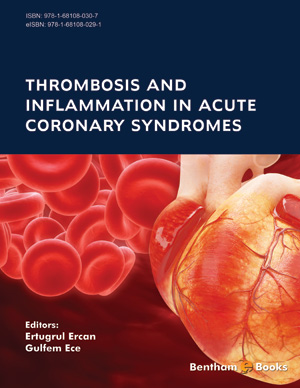Abstract
Coronary artery disease is the cause of 20% of deaths worldwide, increasing up to 50% in developed countries. Atherosclerosis is a multifactorial disease that is strongly affected by inborn and acquired risk factors. It has predisposing factors such as hypercholesterolemia, hypertension, diabetes mellitus or smoking. The contribution of infection to atherosclerosis is still a challenge. Infectious agents can aggrevate plaque rupture, and cause acute myocardial infarction and death. Atherosclerosis is a chronic inflammatory process. Various bacterial and viral pathogens have been considered as a cause for inflammation of the vascular wall which leads to atherosclerosis. C. pneumoniae, H. pylori, influenza A virus, Hepatitis C virus, Cytomegalovirus, and human immunodeficiency virus (HIV) are related to atherosclerosis. This chapter is about the potential role of these infectious pathogens in acute atherosclerosis.
Keywords: Coronary artery disease, acute mycocardial infarction, atherosclerosis, bacterial pathogens, C. pneumoniae, coagulation, Cytomegalovirus, endothelial cell, foam cell, gp120, H. pylori, Hepatitis C virus, HIV, infectious pathogens, inflammation, influenza A virus, macrophage, plaque rupture, proinflammatory cytokines, viral agents






















